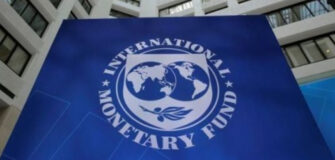Share
Harare, Zimbabwe – March 2025 – Harare and other major cities have become heavily fortified as police and security forces are deployed in overwhelming numbers to prevent anticipated anti-government protests. These demonstrations are driven by a coalition of frustrated war veterans rallying against President Emmerson Mnangagwa’s controversial proposal for a term extension. Despite fervent mobilization efforts, government warnings have instilled fear among citizens, prompting many to reconsider their intentions to join the protests.
Intimidating Security Measures
As dawn broke, an unsettling silence fell over the city, punctuated only by the rhythmic march of police in imposing riot gear, strategically stationed at key locations like bustling plazas, government offices, and significant traffic hubs. Eyewitnesses noted the presence of plainclothes intelligence agents moving through crowds like silent predators, their vigilant watch aimed at crushing any signs of dissent. Once lively areas such as Harare’s First Street and Unity Square lay eerily quiet, a haunting reflection of the climate of fear gripping the populace. Retailers operated with caution, shrouded in anxiety, while opposition activists lamented an atmosphere of intimidation that stifled civic engagement.
War Veterans’ Anger and Support for Opposition
A faction of disenchanted war veterans has stoked the flames of protest. Their poignant grievances resonate with frustrations over the current regime, citing rampant corruption and unfulfilled promises made to those who fought for Zimbabwe’s liberation. Prominent opposition figures have joined this chorus, framing the anticipated protests as a representation of widespread discontent amidst soaring economic challenges, unbearable inflation, and escalating political repression.
In stark contrast, government officials have labeled these planned protests as a “threat to national stability.” Home Affairs Minister Kazembe Kazembe issued a stern warning against any unauthorized gatherings, while police preemptively detained several activists to thwart the movement before it could gather momentum.
Public Sentiment and Government’s Defensive Posture
Despite impassioned calls for mass protests circulating on social media, the public’s response has been surprisingly subdued. Many citizens voiced fears of potential arrests and highlighted a troubling lack of unified leadership among dissidents. State-run media praised the populace for their restraint, portraying the decision to refrain from protests as a laudable act of patriotism while dismissing the unrest as a misguided attempt to undermine national stability.
Meanwhile, opposition leaders and various human rights organizations expressed outrage at the government’s heavy-handed approach, condemning it as a disturbing display of intolerance toward dissent.
Future Implications
The contentious proposal for President Mnangagwa’s term extension continues to fuel heated debates, with critics warning that it poses a significant threat to Zimbabwe’s democratic foundations. While today’s planned protests were effectively stifled, the political climate remains charged with tension as activists vow to persist in their unyielding fight for democratic reform and accountable governance.
Image Source:media-cldnry.s-nbcnews.com


